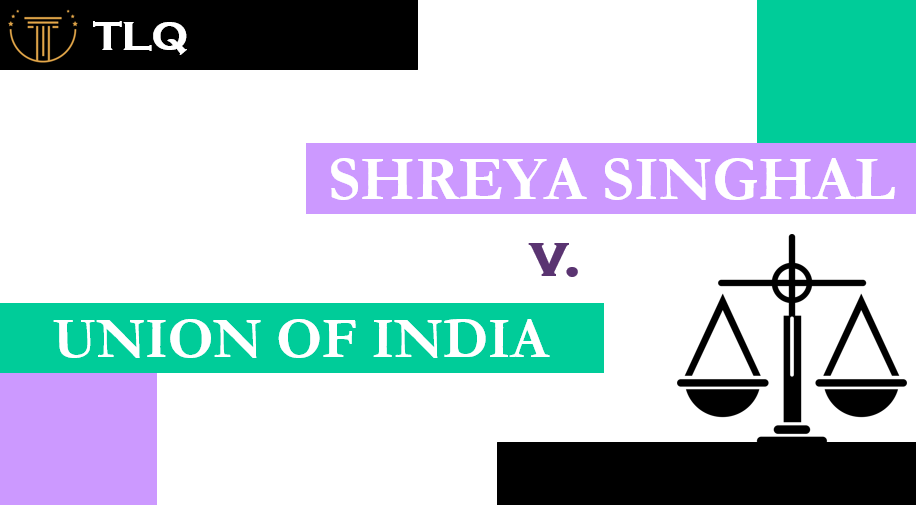Published On: 30th September, 2024
Authored By: Pranjal Sahay
Bharati Vidyapeeth University
INTRODUCTION
In the environment of global industries, the efficient and impartial resolution of disputes is a boon. Arbitration institution plays a very crucial role in this process, providing provisions for arbitration that are often preferred over traditional court mechanisms due to their expertise and flexibility. This article highlights the role of an arbitration institution, its relevance and its contribution towards international industries.
ARBITRATION
Arbitration is a form of alternative dispute resolution. It is a concept in which parties submit their dispute to the respective arbitrator, who in return makes a binding decision on the matter. It is preferred over traditional litigation due to its expertise, efficiency, and less formal mode of communication. It enables productivity in the global environment by providing resolution to disputes of different legal systems present around. It helps them to arrive at a neutral conclusion.
Brief History
The modern development of international arbitration can be traced to the Jay Treaty (1794)1 between Great Britain and the United States. International arbitration was given a more permanent basis by The Hague Convention2 on the Pacific Settlement of International disputes, revised by a conference in 1907.
A Permanent Court of Arbitration was set up at The Hague in 1899 and between 1902 to 1932 twenty cases were arbitrated. Later on, importance was shifted towards the Permanent Court of Justice and its successor International Court of Justice after diminishing the Permanent Court of Arbitration. In 1923, the establishment of the The International Court of Arbitration occurred which was originally devised for settlement of disputes.
ARBITRATION INSTITUTION
Arbitration Institution was set up to operate globally because of its flexibility and efficiency. There are several institutions established, each with its own rules, procedures and area of expertise.
International Chamber of Commerce (ICC) London Court of International Arbitration (LIAC)
American Arbitration Association (AAA) / International Centre for Dispute Resolution (ICDR)
Singapore International Arbitration Centre (SIAC) Hong Kong International Arbitration Centre (HKIAC)
China International Economic and Trade Arbitration Commission (CIETAC) International Centre for Settlement of Investment Disputes (ICSID)
International Chamber of Commerce (ICC)
ICC was founded in 1919 in Atlantic City after the First World War. The Commission on Arbitration and ADR is ICC Dispute Resolution Services3. It provides inputs on proposed modifications of dispute resolution rules applied in ICC Dispute Resolution Services. The Commission studies legal, practical, and procedural aspects of ADR and Arbitration in the interest of access to justice. It carries out specific projects in task forces or working groups.
London Court of International Arbitration (LCIA)
LCIA was established in 1892. It is the world’s leading international institution for commercial dispute resolution. It has access to most of the expert and experienced arbitrators and experts from different jurisdictions. Its rules are universally applicable and is suitable for all types of arbitral disputes. It offers a combination of civil and common law systems.
American Associate Arbitration (AAA)
AAA helps one to choose the right arbitrator and mediator. It has arbitrators and mediators who have serious responsibility and ethical obligations to public and parties. It is expertise in knowledge, mastery, and proficiency in a particular field. It specializes in fields such as pensions, healthcare, merger and acquisition, franchise, and many more. It typically involves a National Roster of Arbitrators with expertise in particular fields.
Singapore International Arbitration Centre (SIAC)
It is an independent not-for-profit organization established in 1991. It establishes a record for the best arbitration services to the global business community. It provides cost-competitive and efficient case management services to parties from all over the world.
Hong Kong International Arbitration Centre (HKIAC)
It was established in 1985 and is one of the three most preferred institutions in the world. It has international experts who help in decision-making. It helps in the efficient application of neutral and qualified arbitrators. It has dedicated processes for complex arbitration, small cases, and unmeritorious issues of law and fact.
China International Economic and Arbitration Commission (CIETAC)
It was established in the year 1956. It is an independent institution that does not have interference from the administration. It is cost-effective and provides professional administrative services.
International Centre for Settlement of Investment Disputes (ICSID)
It was established in the year 1966 by the convention on the settlement of disputes by conciliation, mediation, Arbitration, or fact-finding. It is a part of the world bank group which specialises in Investor State Dispute Settlement (ISDS). It is designated to take account into special characteristics related to international investment disputes.
IMPORTANCE OF ARBITRATION INSTITUTIONS
International arbitration bodies play a critical role globally by offering a structured and impartial platform for settling disputes outside traditional court systems. Organizations like the ICC and LCIA provide expertise, rules, and support to ensure fair and efficient conflict resolution. One of the main benefits of arbitration is its ability to deliver a decision that is binding and enforceable internationally through agreements like the New York Convention4. This worldwide enforceability makes arbitration especially appealing for disputes spanning different jurisdictions. Additionally, arbitration is typically faster and more adaptable than litigation, allowing parties to choose arbitrators with specific skills and customize procedures to suit their requirements.
These arbitration bodies also uphold standards and best practices to ensure consistency and predictability in dispute resolution, fostering trust among global businesses and investors. By offering alternative ways to resolve conflicts that might be complicated by political or legal uncertainties in national courts, these institutions improve access to justice. Overall, international arbitration institutions are crucial in promoting legal certainty, supporting international trade and investment, and cultivating a stable and foreseeable global business environment.
CHALLENGES IN ARBITRATION INSTITUTION
Arbitration is a two-way process that has advantages of communication and arising at a conclusion but the process involves criticism and challenges which should be taken care of while resolving the dispute.
Transparency: It is one of the most important concerns while using dispute resolution. It may sometimes happen that after the arrival of the required conclusion the terms and conditions may affect the one or the other part. The arbitration decisions are private and so the accountability of the decision may be questioned by many.
Enforcement Issues: After completion of the process of Arbitration it may be difficult for one to enforce the conclusion. The enforcement involves certain procedures to be followed which may be time-consuming. Also, due to the dynamic nature of law it may be difficult to enact the same if some amendment has been done with respect to the decision. It may disturb the International equilibrium.
Cost: It may be a concern for many people as the arbitration process may be expensive. The expert and experienced arbitrators charge a high amount of money which everyone cannot afford which discourages them to arrive to seeking justice.
Indifferent: After arriving at a decision it may be difficult to continue with the same as it might be difficult to enforce due to indifferent laws of arbitration across the International market.
RECENT TRENDS AND DEVELOPMENT OF ARBITRATION INSTITUTION
In recent years the institutions have upgraded themselves and have come with their best version to provide justice and to maintain the International Equilibrium across the globe.
Technological Advancements: It came into effect during the COVID period. The technology has allowed one to access the institutions from the home itself via video conferencing, and online communication. With the electronic emergence paper work, e-filing, working of administration became easier. This has made Arbitration more effective and efficient.
Third-Party Funding: After the third-party funding access of arbitration has become more accessible as it provides finances to the parties through external funding. It helps to seek justice for the people who are unable to afford expensive arbitration.
Transparency: Some institutions are implementing measures to increase transparency, like providing arbitration appointments and decisions.
Diversity: Growing emphasis can be seen on diversity within the arbitration community.
GLOBAL DEVELOPMENTS AND CURRENT TRENDS
The Middle East is drawing global businesses with its development plans aimed at boosting growth through economic diversification beyond oil and gas. Saudi Arabia is notably focusing on investing in various sectors such as infrastructure, energy, sports, technology, and telecoms with ambitious and complex projects. The region has also seen significant changes in arbitration laws, including updates to the UAE Arbitration law, the establishment of arbitrate AD in Abu Dhabi, and the release of new arbitration rules by the Saudi Centre for Commercial Arbitration (SCCA)5.
Africa: It has seen a rise in international trade and investment across its countries. In the past year, several African nations and arbitral institutions have adopted international arbitration trends and standards, such as Nigeria adopting the UNCITRAL Model Law 20066.
Noteworthy developments include the establishment of arbitration centers in Johannesburg, Nairobi, and Lagos, as well as the ongoing efforts of the Arbitration Foundation of Southern Africa (AFRA) to form a South African Development Community (SADC)7. There is a growing interest in third-party funding in Africa, with some arbitral institutions like the Cairo Regional Centre for International Commercial Arbitration adjusting their rules to accommodate and promote it. Nigeria has also passed legislation to allow for third-party funding.
Singapore: The Singapore International Arbitration Centre (SIAC)8 has undergone various updates and is currently working on finalizing its seventh edition of Rules, which are favored by Indian parties. One key change includes a simplified process for resolving low-value disputes, allowing for quicker awards through a document-only method within three months. Singapore has also witnessed arbitration cases involving issues such as confidentiality and the determination of arbitrability.
India: The use of international arbitration for resolving disputes is rapidly increasing in India, whether conducted within the country or abroad. This growth is driven by the growing acceptance of arbitration in commercial contracts and the increasing expertise of business users, especially in cross-border transactions. This rising demand has led to the establishment of Indian arbitral centers like the International Arbitration and Mediation Centre (IAMC)9 in Hyderabad in 2019 and the upcoming India International Maritime Arbitration Centre in Mumbai. Additionally, recent significant Supreme Court rulings on issues like third-party funding, ‘stamping’, and the ‘group of companies’ doctrine are expected to further strengthen India’s arbitration landscape.
China: In China, new rules for both the China International Economic and Trade Arbitration Commission (CIETAC) and the Shanghai International Arbitration Centre (SHIAC) were introduced in early 2024. A court in Beijing also legitimized the use of third-party funding in arbitration proceedings and established guidelines for challenging arbitral awards related to such agreements. In the Hong Kong Special Administrative Region (SAR), the Hong Kong International Arbitration Centre (HKIAC) continues to expand its user base for cross-border disputes and has recently taken steps to promote cooperation through its administrative mechanism jointly with Tashkent International Arbitration Centre (TIAC). The TIAC-HKIAC Rules enable the two centers to handle cases jointly, combining the expertise of HKIAC with the cost-effective service and regional expertise of TIAC.
United Kingdom: A major development in the UK is the Arbitration Bill, which passed to the committee stage after a second reading on 17 January. The Bill implements changes to the current Arbitration Act 1996 recommended by the Law Commission of England and Wales. Addresses the law governing arbitration agreements, strengthens the powers of the court, and allows for faster resolution of disputes.
France: Recent judgments by French courts have demonstrated the scrutiny that supervisory arbitrators may face when they perceive conflicts of interest; the challenges that successful arbitration parties may face in enforcing awards that raise international public policy issues; and how French arbitration law can still be considered the law governing an arbitration agreement even if the parties have chosen the law of another country as the basis for their contract.
Germany: After the German Ministry of Justice published its consultation document in April 2023 identifying the areas that should be addressed in the draft bill to reform German arbitration law, the draft bill was published in February. The draft bill covers topics such as emergency arbitrators; dissenting opinions; and the formation of joint arbitration panels and the Higher Regional Court across federal state borders. The German Institution of Arbitration (DIS) has pushed forward a number of initiatives proposed to reform it. As part of the institution’s digital transformation, it launched its online platform “DIS eFile” from September 2023. German courts have also recently published a number of important cases, including one from the Federal Court of Justice in March 2023, which confirmed that annulment proceedings in the state of origin of the arbitral award have no binding effect on enforceability determination proceedings in Germany.
SOLUTIONS FOR EFFECTIVE WORKING OF THE ARBITRATION INSTITUTION
To improve the effectiveness of international arbitration institutions, consider the following solutions:
Harmonization of rules: Develop and adopt harmonized arbitration rules to reduce inconsistencies and ensure smoother processes. This can be facilitated by international organizations such as the United Nations Commission on International Trade Law (UNCITRAL).
Technology integration: Implement advanced technology for case management, virtual hearings and secure document management to streamline processes and reduce costs.
Training and development: Regularly train arbitrators, lawyers and administrative staff to stay up to date with international best practices and new legal developments.
Transparency and accountability: Increase transparency in arbitration proceedings and decisions to build trust. This may include publishing redacted arbitral awards and providing clear guidelines on the appointment and conduct of arbitrators.
Enforcement mechanisms: Strengthen the enforcement of arbitral awards by promoting wider adoption of international conventions such as the New York Convention on the Recognition and Enforcement of Foreign Arbitral Awards.
Institutional support: Create a robust institutional framework that provides administrative and logistical support to arbitration procedures to ensure that they run smoothly and efficiently.
User feedback and adaptation: Collect feedback from users and stakeholders on a regular basis to identify areas for improvement and adapt procedures accordingly.
Promotion and awareness: Promote the benefits of arbitration as a dispute resolution mechanism to increase its acceptance and use worldwide. This can be achieved through awareness campaigns and outreach programs.
Cost management: Develop cost-effective models to make arbitrage more accessible, particularly for smaller businesses and individuals.
10Collaboration and networking: Promote collaboration between arbitration institutions around the world to share knowledge, resources and best practices.
CONCLUSION
Arbitration institutions play a vital role in the resolution of international disputes, offering expertise, efficiency, and a neutral forum for parties from different jurisdictions. While challenges and criticisms exist, ongoing developments and innovations are helping to address these issues and enhance the effectiveness of arbitration. As global commerce continues to grow and evolve, the importance of arbitration institutions in providing reliable and enforceable dispute resolution mechanisms will only increase, cementing their role in the international legal framework.
CITATION
(Encyclopedia Britannica, 19 July 2024)
<https://www.britannica.com/topic/arbitration/International-commercial-arbitration> accessed 25 July 2024
‘International Chamber of Commerce’ (ICC, 26 June 2024) <https://iccwbo.org/#:~:text=ICC
%20delivers%20solutions%20that%20address,prosperity%20and%20opportunity%20for
%20all.> accessed 25 July 2024
Lcia, ‘The London Court of International Arbitration (LCIA)’ (LCIA)
<http://www.LCIA.org/> accessed 25 July 2024
‘The Latest from the AAA’ (American Arbitration Association | ADR.org)
<https://www.adr.org/> accessed 26 July 2024
(Home – Singapore International Arbitration Centre) <https://siac.org.sg/> accessed 25 July 2024
‘Hong Kong International Arbitration Centre’ (HKIAC, 4 June 2024)
<https://www.hkiac.org/> accessed 26 July 2024
‘Home’ (CIETAC) <https://www.cietac-eu.org/> accessed 26 July 2024
(International Centre for Settlement of Investment Disputes) <https://icsid.worldbank.org/> accessed 26 July 2024
McDonald P, ‘International Arbitration: Global Developments and Current Trends’ (Pinsent Masons, 14 March 2024) <https://www.pinsentmasons.com/out-law/analysis/international- arbitration-global-developments-current-trends#:~:text=Demand%20has%20spurred%20on
%20the,open%20in%20Mumbai%20this%20year.> accessed 26 July 2024




